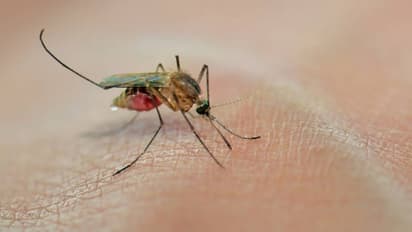What is Japanese Encephalitis? Delhi reports first isolated case; all you need to know

Synopsis
The National Centre for Vector Borne Diseases Control (NCVBDC) guidelines were followed, and public health measures have been implemented to prevent any further spread, with authorities assuring the public that there is no cause for concern.
Delhi has reported its first isolated case of Japanese Encephalitis, a rare viral illness typically transmitted by mosquitoes, according to official sources. The 72-year-old patient, from West Delhi, was admitted to the All India Institute of Medical Sciences (AIIMS) on November 3 due to chest pain. He had a medical history of diabetes, coronary artery disease, and other complications such as bilateral lower limb weakness and bowel and bladder incontinence.
On November 6, after a blood sample was tested, the patient was confirmed to have Japanese Encephalitis. He was discharged from the hospital on November 15, following treatment.
What is the MMS leak scandal shaking Pakistan? Kanwal Aftab allegedly joins the list
The National Centre for Vector Borne Diseases Control (NCVBDC) guidelines were followed, and public health measures have been implemented to prevent any further spread, with authorities assuring the public that there is no cause for concern.
Despite this isolated case, no outbreaks of the disease have been reported in Delhi, and the few cases observed in the capital have been in patients from neighboring states.
In 2024, 1,548 cases of Japanese Encephalitis have been reported across 24 states and union territories, with Assam accounting for the majority at 925 cases. The central government has recommended two doses of the Japanese Encephalitis vaccine as part of the Universal Immunisation Programme since 2013, with additional adult vaccines introduced in high-burden states.
Japanese Encephalitis is a viral illness primarily spread through mosquitoes, particularly the Culex species. It can also affect animals, especially through migrating birds, though it occasionally infects humans. While children are more vulnerable, the disease is not contagious person-to-person.
24-year-old Delhi woman working in Bengaluru spa found dead by suicide in Bagalgunte, probe ongoing
The infection can cause mild fever in some cases, while severe instances may lead to neurological symptoms, including confusion, tremors, convulsions, and even coma. In rare cases, it can be fatal.
Although there is no specific treatment, many infected individuals remain asymptomatic. For every symptomatic case, there are between 500 and 1,000 individuals who carry the virus without showing any signs of illness.
Stay updated with the Breaking News Today and Latest News from across India and around the world. Get real-time updates, in-depth analysis, and comprehensive coverage of India News, World News, Indian Defence News, Kerala News, and Karnataka News. From politics to current affairs, follow every major story as it unfolds. Get real-time updates from IMD on major cities weather forecasts, including Rain alerts, Cyclone warnings, and temperature trends. Download the Asianet News Official App from the Android Play Store and iPhone App Store for accurate and timely news updates anytime, anywhere.